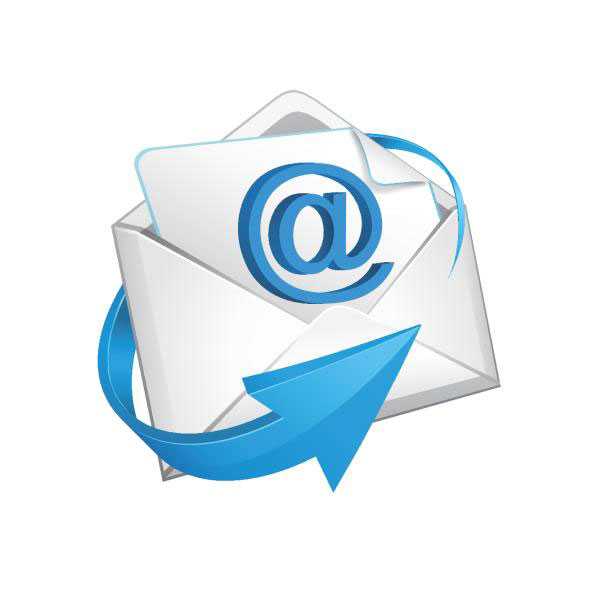
But it is the widespread adoption of e-mail as a communication tool where change has been the most significant. E-mail has fundamentally changed the way we do business. E-mail has given us an unprecedented way to quickly share our thoughts in writing, regardless of our physical proximity to the intended recipient (or our presence in an office). E-mail has provided us with a means to easily share our written thoughts with multiple parties.
What follows is an attempt to highlight how the effective use of e-mail can help you in your legal career. More importantly, we wanted to demonstrate some of the career pitfalls associated with poor uses of e-mail.
Rules of e-mail etiquette
As with any form of communication, the rules governing e-mail etiquette have evolved over time and are continuing to develop as we write. Some conventions are already well established.
For example, it is now common practice to forgo the formalities of a business letter when composing an e-mail message. Similarly, when we send e-mail, it is customary to expect a quick response (certainly quicker than if we sent a letter by regular mail).
But many other conventions are continuing to develop and the rules about when and how it is best to use e-mail (versus other forms of communication) are not always clear.
A useful marketing tool
Relationship-building is an important concept in marketing professional services. Because it is difficult to predict when someone will need an attorney (or hear of someone who has a legal problem), it is important to stay in contact with your professional network.
Similarly, keeping your visibility high inside your firm is important for your career advancement. E-mail provides a fast and easy way to stay in contact with a large number of individuals, both internally and externally.
Clipping articles when you see something that might interest one of your clients or referral sources has always been a good way to cultivate your business relationships. Taking the time to do this demonstrates that you are thinking of your contacts and that you know something about them. It also reminds potential referral sources that you are "out there."
Doing this through e-mail (either by forwarding a link or by attaching something electronically) has two benefits. First, because e-mail is easy to forward, you can reach your contacts more frequently. Second, and perhaps more importantly, if you send an item to someone on your contact list, they can in turn easily forward it to individuals in their organization or professional network.
Judicious use of the "cc" or "bcc" functions in e-mail is also an effective way to keep partners apprised of your accomplishments. Don't inundate partners with unnecessary e-mail messages; but don't hesitate to let partners know that you have published an article, joined a bar association committee, achieved a good result for a client, etc.
E-mail can also be a good way to give a quick "progress report" on a project and ask for further clarification.
Sending out large amounts of impersonal e-mail
Because e-mail is so easy to send to a large number of recipients, the temptation is to forward everything to everyone on your list. This will certainly keep your visibility high. But there is a more effective approach.
While it may take longer to compose individual e-mail messages when you forward articles and other items of interest, taking the time to personalize your communications in some way is more effective.
If you prefer to send out bulk e-mail messages because you have a large list of contacts, use a software program that can personalize your salutations. Two viable options include Broadc@st by Mailworkz and Constant Contact. Both of these programs enable you to semi-customize the e-mail communications that you send without having to compose dozens of individual messages.
Not for everyone
Each one of us prefers to communicate in our own way. Some prefer to interact by telephone while others enjoy meeting in person. Still others like the efficiency of e-mail. Regardless of what your own personal preferences are, it is important to remember that effective communication is not about you; rather, effective communication is about the recipient.
For example, if you need to explain a judge's ruling to a client, it may be your preference to send an e-mail message. Perhaps you like to give case updates in writing because you ensure that you have given all of the important information to the client (and you have a record of having done so).
But consider how your client might prefer to receive the information. Some clients prefer the telephone. Others would rather have the information in writing so they do not have to take notes when they speak with you and so they have more time to reflect. Still others might prefer both.
If your default method of communication is the method that you prefer, you may find that some clients are happy. But take the time to find out what your client likes and you may have a much happier client.
Dealing with the partner who communicates primarily by e-mail
E-mail has given busy partners a very efficient way to stay in contact with a number of associates. As the pressure to bill hours has grown in the practice of law, some partners have found that they no longer have the time to sit down with associates and explain every assignment they hand out.
Unfortunately, this change in intra-office communication has meant that many associates have less opportunity to get to know the partners at their firms. Aside from the obvious downsides of e-mail replacing face-to-face communications (i.e. that the office has become a more impersonal workplace), there are perils lurking for the associate who simply relies on a partner's e-mail correspondence.
The simple career lesson is this: If you do not completely understand an assignment that has come to you by e-mail and an exchange of e-mail messages does not satisfactorily clear up the confusion, then it behooves you to have a real conversation. It is better to interrupt a busy partner than to risk doing the assignment improperly.
Opportunities for miscommunication
Perhaps the biggest potential problem with e-mail is the informal nature of the medium. Unlike a business letter that is sent by regular mail, e-mail messages are often sent with limited deliberation and review.
At the same time, because e-mail creates an excellent archive of written communications, e-mail messages that are potentially inflammatory or otherwise problematic can come back to haunt you even years later.
E-mail is an excellent mode of communicating objective information (meeting times, answers to simple questions, FYIs to keep important people in the loop). But it may not always be the best way to communicate more subjective information.
Think twice before putting criticism or apologies in an e-mail message. If you don't like the way a paralegal handled a client interaction, find a time to speak with him in person. A straightforward message that reads: "I don't like the way you spoke to Mr. Johnson. We need to talk." will only put the paralegal on the defensive and give him time to stew.
If you receive e-mail messages that you consider inflammatory (someone has insulted you in some way, unjustly accused you of something, etc.), think carefully before responding and consider whether you want to respond at all. Perhaps it is better to find time to speak with the person directly.
Because e-mail is a written medium, it is often not an effective way to communicate emotions or deliver messages that have a lot of nuance.
In many cases, you may benefit from waiting a day (if appropriate) and rereading the message before deciding how to respond. What came across as brusk and insensitive to you initially may appear less so on a second reading.
Also, sleeping on it will enable you to respond in a more appropriate and less emotional way after you have taken the time to digest the actual content. Because e-mail messages are often sent without the thought that we might give to more formal writing, we are more prone to sending e-mail without properly considering the feelings of the recipient.
Using e-mail to make difficult requests
E-mail can be a very effective way to ask for something without making the other person feel pressured about giving an answer right away. This can be useful if you want to ask a favor of a colleague without putting him or her on the spot.
But e-mail may be a poor substitute for a live conversation when you want to tell someone that you are annoyed with their behavior (or with something they said in an e-mail message to you).
E-mail is a powerful communication tool that has changed the way we interact with our colleagues and clients. Blackberry devices and other handheld PDAs have made e-mail the preferred mode of communication for many professionals because it is so efficient. While e-mail has dramatically increased the speed with which documents and information are exchanged, it is important to remember that e-mail has also created a whole new medium for miscommunication.
Use e-mail wisely and with deliberate intent and it will be a boon to your career. Misuse e-mail and you put your career in grave danger.
As with any form of communication, the rules governing e-mail etiquette have evolved over time and are continuing to develop as we write. Some conventions are already well established.
For example, it is now common practice to forgo the formalities of a business letter when composing an e-mail message. Similarly, when we send e-mail, it is customary to expect a quick response (certainly quicker than if we sent a letter by regular mail).
But many other conventions are continuing to develop and the rules about when and how it is best to use e-mail (versus other forms of communication) are not always clear.
A useful marketing tool
Relationship-building is an important concept in marketing professional services. Because it is difficult to predict when someone will need an attorney (or hear of someone who has a legal problem), it is important to stay in contact with your professional network.
Similarly, keeping your visibility high inside your firm is important for your career advancement. E-mail provides a fast and easy way to stay in contact with a large number of individuals, both internally and externally.
Clipping articles when you see something that might interest one of your clients or referral sources has always been a good way to cultivate your business relationships. Taking the time to do this demonstrates that you are thinking of your contacts and that you know something about them. It also reminds potential referral sources that you are "out there."
Doing this through e-mail (either by forwarding a link or by attaching something electronically) has two benefits. First, because e-mail is easy to forward, you can reach your contacts more frequently. Second, and perhaps more importantly, if you send an item to someone on your contact list, they can in turn easily forward it to individuals in their organization or professional network.
Judicious use of the "cc" or "bcc" functions in e-mail is also an effective way to keep partners apprised of your accomplishments. Don't inundate partners with unnecessary e-mail messages; but don't hesitate to let partners know that you have published an article, joined a bar association committee, achieved a good result for a client, etc.
E-mail can also be a good way to give a quick "progress report" on a project and ask for further clarification.
Sending out large amounts of impersonal e-mail
Because e-mail is so easy to send to a large number of recipients, the temptation is to forward everything to everyone on your list. This will certainly keep your visibility high. But there is a more effective approach.
While it may take longer to compose individual e-mail messages when you forward articles and other items of interest, taking the time to personalize your communications in some way is more effective.
If you prefer to send out bulk e-mail messages because you have a large list of contacts, use a software program that can personalize your salutations. Two viable options include Broadc@st by Mailworkz and Constant Contact. Both of these programs enable you to semi-customize the e-mail communications that you send without having to compose dozens of individual messages.
Not for everyone
Each one of us prefers to communicate in our own way. Some prefer to interact by telephone while others enjoy meeting in person. Still others like the efficiency of e-mail. Regardless of what your own personal preferences are, it is important to remember that effective communication is not about you; rather, effective communication is about the recipient.
For example, if you need to explain a judge's ruling to a client, it may be your preference to send an e-mail message. Perhaps you like to give case updates in writing because you ensure that you have given all of the important information to the client (and you have a record of having done so).
But consider how your client might prefer to receive the information. Some clients prefer the telephone. Others would rather have the information in writing so they do not have to take notes when they speak with you and so they have more time to reflect. Still others might prefer both.
If your default method of communication is the method that you prefer, you may find that some clients are happy. But take the time to find out what your client likes and you may have a much happier client.
Dealing with the partner who communicates primarily by e-mail
E-mail has given busy partners a very efficient way to stay in contact with a number of associates. As the pressure to bill hours has grown in the practice of law, some partners have found that they no longer have the time to sit down with associates and explain every assignment they hand out.
Unfortunately, this change in intra-office communication has meant that many associates have less opportunity to get to know the partners at their firms. Aside from the obvious downsides of e-mail replacing face-to-face communications (i.e. that the office has become a more impersonal workplace), there are perils lurking for the associate who simply relies on a partner's e-mail correspondence.
The simple career lesson is this: If you do not completely understand an assignment that has come to you by e-mail and an exchange of e-mail messages does not satisfactorily clear up the confusion, then it behooves you to have a real conversation. It is better to interrupt a busy partner than to risk doing the assignment improperly.
Opportunities for miscommunication
Perhaps the biggest potential problem with e-mail is the informal nature of the medium. Unlike a business letter that is sent by regular mail, e-mail messages are often sent with limited deliberation and review.
At the same time, because e-mail creates an excellent archive of written communications, e-mail messages that are potentially inflammatory or otherwise problematic can come back to haunt you even years later.
E-mail is an excellent mode of communicating objective information (meeting times, answers to simple questions, FYIs to keep important people in the loop). But it may not always be the best way to communicate more subjective information.
Think twice before putting criticism or apologies in an e-mail message. If you don't like the way a paralegal handled a client interaction, find a time to speak with him in person. A straightforward message that reads: "I don't like the way you spoke to Mr. Johnson. We need to talk." will only put the paralegal on the defensive and give him time to stew.
If you receive e-mail messages that you consider inflammatory (someone has insulted you in some way, unjustly accused you of something, etc.), think carefully before responding and consider whether you want to respond at all. Perhaps it is better to find time to speak with the person directly.
Because e-mail is a written medium, it is often not an effective way to communicate emotions or deliver messages that have a lot of nuance.
In many cases, you may benefit from waiting a day (if appropriate) and rereading the message before deciding how to respond. What came across as brusk and insensitive to you initially may appear less so on a second reading.
Also, sleeping on it will enable you to respond in a more appropriate and less emotional way after you have taken the time to digest the actual content. Because e-mail messages are often sent without the thought that we might give to more formal writing, we are more prone to sending e-mail without properly considering the feelings of the recipient.
Using e-mail to make difficult requests
E-mail can be a very effective way to ask for something without making the other person feel pressured about giving an answer right away. This can be useful if you want to ask a favor of a colleague without putting him or her on the spot.
But e-mail may be a poor substitute for a live conversation when you want to tell someone that you are annoyed with their behavior (or with something they said in an e-mail message to you).
E-mail is a powerful communication tool that has changed the way we interact with our colleagues and clients. Blackberry devices and other handheld PDAs have made e-mail the preferred mode of communication for many professionals because it is so efficient. While e-mail has dramatically increased the speed with which documents and information are exchanged, it is important to remember that e-mail has also created a whole new medium for miscommunication.
Use e-mail wisely and with deliberate intent and it will be a boon to your career. Misuse e-mail and you put your career in grave danger.





